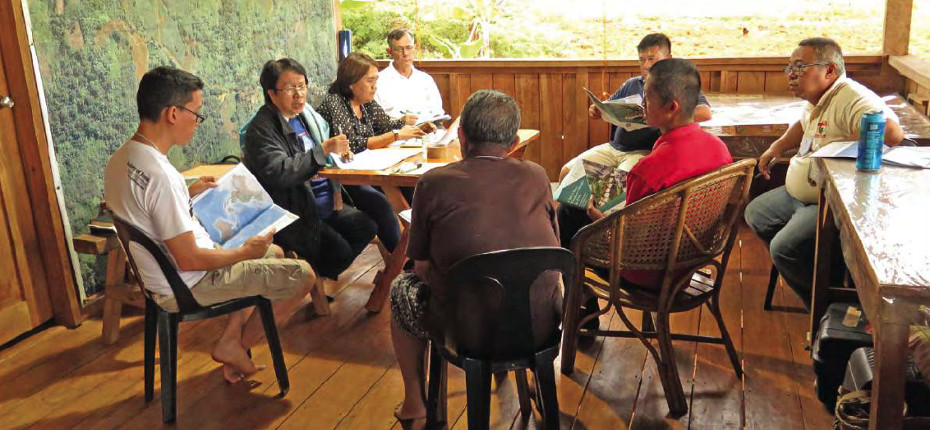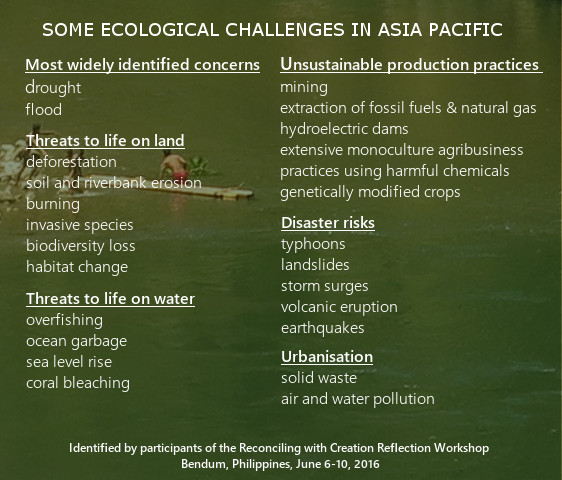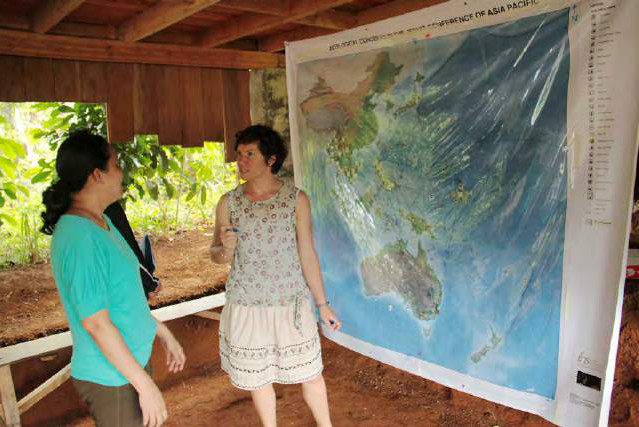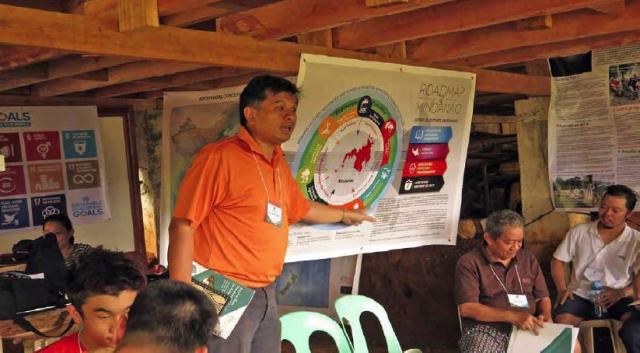

Inspired by JCAP’s Our Environmental Way of Proceeding, Saint Ignatius’ College, Riverview in Australia has developed an Environmental Charter, a Sustainability Master Plan and a Green Procurement Policy.
The Philippine Province has adopted the JCAP Disaster Risk Reduction Protocol for early warning and response in times of typhoons, floods and other fast-onset disasters. In May 2016 the province promulgated its roadmap that included responding to ecosystem concerns through education for sustainable development, conflict resolution, disaster risk reduction and management, agriculture and food security.
The Cambodia mission has embarked on a prefecture-wide eco-audit of all parish houses and communities and established an advocacy desk for the environment.

In terms of youth formation, Jesuit Refugee Service in Myanmar and Karina Foundation in Indonesia provide environmental education to children internally displaced because of disasters or conflicts over natural resources. Catholic schools in Micronesia organise clean-up days. The Apu Palamguwan Cultural and Education Center in the Philippines has a subject on Natural Resource Management, wherein children and youth learn about environmental care, cultural integrity, human security and peace. The Jesuits in Vietnam and Myanmar have integrated ecology in their Jesuit formation programmes.
About half of the responses relate to the local governance of natural resources. The Jesuits in Cambodia, Philippines and Timor-Leste are responding to the challenges of deforestation, water insecurity and other issues relating to life on land by accompanying indigenous youth in natural forest regeneration, raising awareness about fire management, collaborating with communities in planting and growing indigenous trees and monitoring unsustainable human actions such as burning and wood fuel consumption, and facilitating local dialogue.

In addition, Environmental Science for Social Change in the Philippines has been working on ways to understand and communicate the dynamics behind our ecological crisis and the social research institute in Myanmar is looking at the social impact of environmental degradation.
Efforts are also being made encourage others to share in simple lifestyles and respond to a world at risk. For example, Jesuit Social Services in Australia has a carbon divestment strategy. After a study of the carbon outputs of companies, it developed an advocacy campaign to encourage Jesuit institutions and even teachers and staff to move their investments away from the six companies that have high carbon emissions. The Battambang Prefecture in Cambodia has an environment advocacy desk that runs awareness-building initiatives. The Jesuits in Micronesia use Laudato si’ in preaching. In the Philippines, a bishop wrote a pastoral letter on the environment. There are also partnerships with diocesan social action centres in Mindanao to understand ecological challenges at the diocesan level and find ways to address some of them.
Related story: Renewing life and mission in ecology






